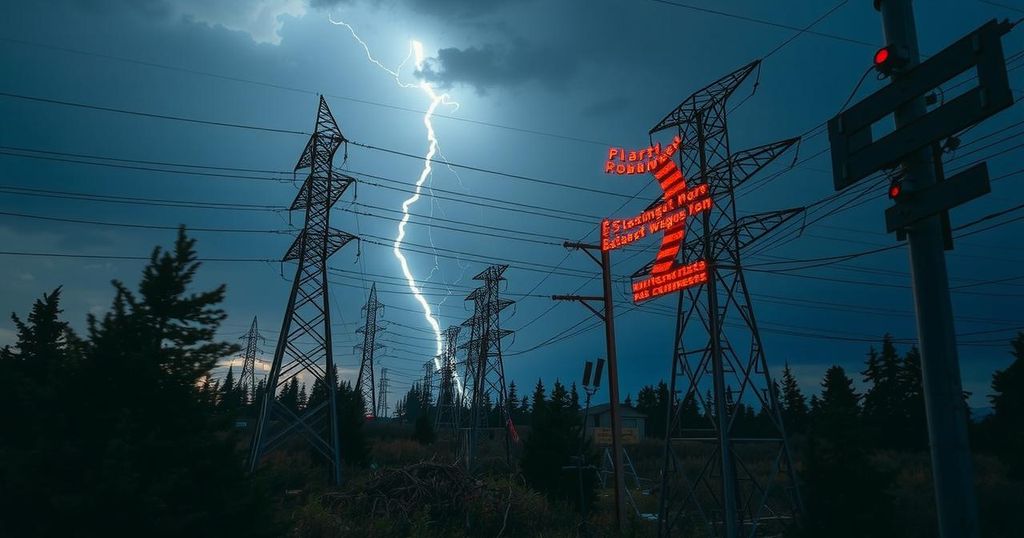Bomb Cyclone Unveils Vulnerabilities in Washington’s Electrical Grid

The bomb cyclone in Western Washington left around half a million customers without power, exposing critical weaknesses in the energy grid and underscoring the urgent need for upgrades as utilities transition to renewable energy amid rising electricity demand. The storm highlighted communication challenges among utilities, especially concerning medical facilities reliant on electricity. Experts advocate for substantial investments in renewable energy and innovations like microgrids to improve grid resilience.
The bomb cyclone that recently impacted Western Washington left approximately half a million customers without power, revealing critical vulnerabilities in the Pacific Northwest’s electrical infrastructure. The storm’s destructive winds uprooted trees, causing extensive damage to power lines and infrastructure. Grid experts emphasized the urgent need for upgrades to the region’s energy systems, as existing utilities aim to transition from fossil fuels towards renewable sources, in line with state mandates for carbon neutrality by 2045. The severe weather has exacerbated issues such as rising electricity demand, insufficient renewable energy installations, and a notable shortage of skilled electricians, all highlighting the necessity for a comprehensive overhaul of the energy grid.
Following the storm, many critical facilities, including hospitals and emergency services, experienced power outages, raising questions about the utilities’ capacity for timely repairs and effective communication with local emergency management officials. The severity of the outages prompted urgent coordination efforts, although initial responses from Puget Sound Energy, the primary utility provider, were criticized for lacking transparency. With the situation escalating, officials expressed concern over vulnerable populations reliant on electricity for medical needs, as the region’s energy infrastructure struggles to accommodate growing demand amidst changing climatic conditions.
In the longer term, experts advocate for investments in renewable energy sources such as wind and solar power, which can enhance the overall resilience of the grid. Additionally, utilizing localized battery storage and microgrid systems could help mitigate the impacts of future outages. Despite the challenges posed by this recent cyclone, there is a consensus among experts that the transition to a more reliable and sustainable energy future is imperative, requiring innovative thinking and potential disruptions to the current energy status quo. The incidents from the storm provide a critical case study illustrating the pressing need for reform in Washington’s energy landscape.
The recent bomb cyclone in Western Washington serves as a significant wake-up call regarding the state and resilience of the region’s electrical grid. As storm intensity increases, potentially fueled by climate change, the existing infrastructure is proving inadequate to meet rising electricity demand and maintain reliability. This situation is compounded by the urgent requirement for utilities to transition to renewable energy sources as mandated by state law, illustrating the need for strategic improvements and investments in the electrical grid to ensure public safety and service continuity in the face of increasingly severe weather events.
In summary, the recent bomb cyclone has exposed glaring weaknesses in Western Washington’s electrical grid, highlighting an urgent need for upgrades and investments in renewable energy. With a growing demand for electricity and a limited workforce, the region faces considerable challenges in maintaining reliable power services. Stakeholders and experts agree that significant changes are necessary to evolve the energy system toward greater resilience and sustainability, particularly as the frequency of powerful storms seems poised to increase with climate change. The call for innovative solutions and the involvement of the private sector may be crucial in addressing these pressing challenges.
Original Source: www.seattletimes.com







